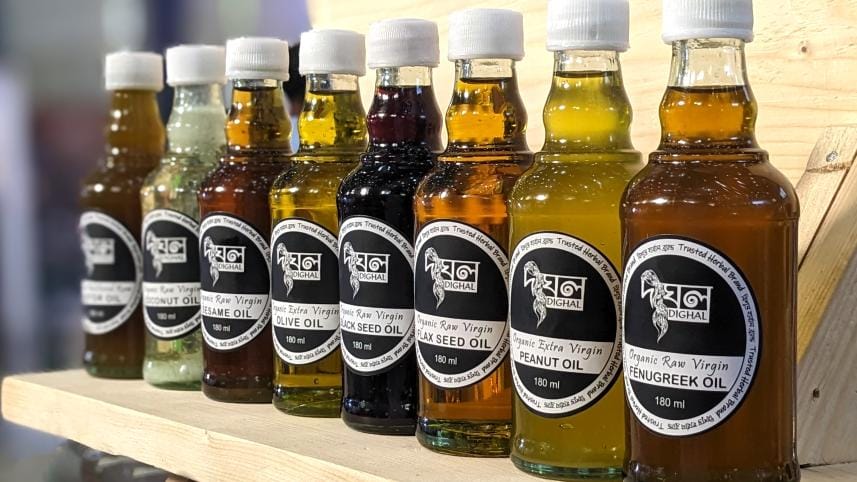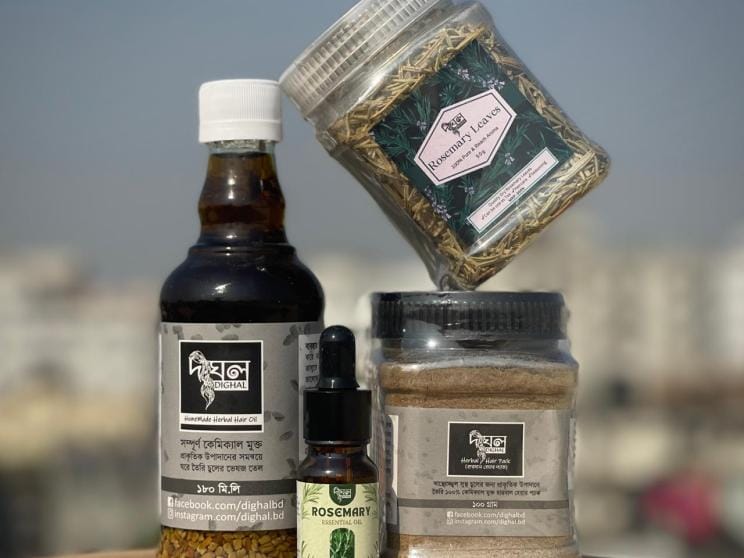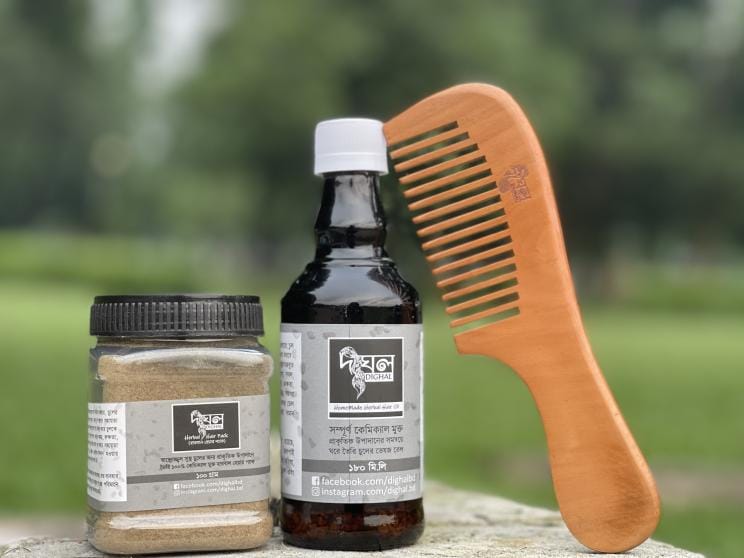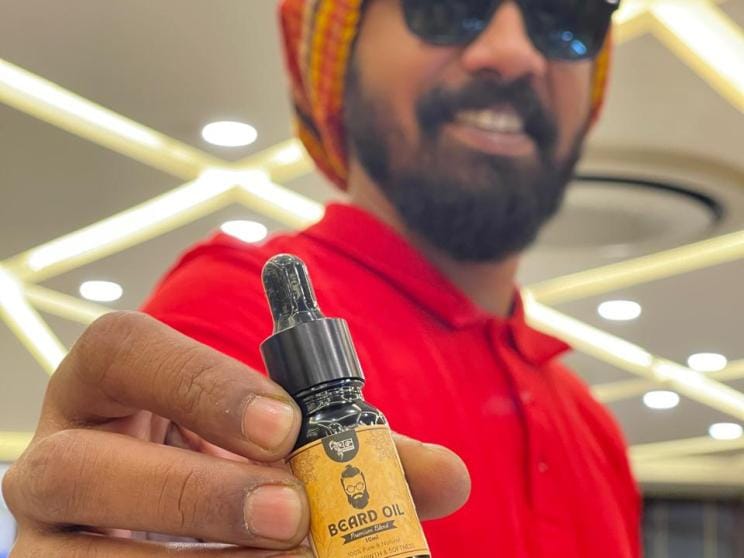How Neeshat turned hair loss into DIGHAL’s herbal success

The story didn't begin with a business plan. It began with hair fall.
When Neeshat Mehedi moved to Dhaka after completing her law degree and getting married, she found herself in unfamiliar terrain — new city, new roles, and new rhythms. But it was something deeply personal that unsettled her most: "My hair started falling out. Fast," she recalls. "I used to take it for granted — my mother and grandmother always took care of it. When I was alone, I realised how helpless I felt trying to fix it myself."
That helplessness sparked curiosity. And that curiosity, eventually, gave birth to DIGHAL.

A personal problem, reimagined
At first, it was just an instinct to return to something familiar. Her mother reminded her of the herbal oils her grandmother used to make — blends of fenugreek, amla, black cumin, and coconut oil left to mature in the sun. But instead of just replicating the memory, Neeshat began to investigate it.
She enrolled in free and paid online courses, learning the chemistry of carrier oils, herb infusion ratios, and the science behind shelf life. "It wasn't enough to say, 'this worked for me,'" she says. "I needed to understand why."
Back then, she had no cosmetics background, no funding, no marketing strategy. Just a kitchen, a few recycled glass bottles from Old Dhaka, and a stubborn desire to get it right.
The first few batches were tested on family and friends. When someone finally insisted on paying, Neeshat didn't think of herself as an entrepreneur. She was simply surprised. "That's when my husband said, "Maybe this is your business.'"
He designed the first logo. Together, they opened an Instagram page and sent out samples to influencers, relying on honesty and word-of-mouth.

Glass bottles and real bottlenecks
From day one, DIGHAL oils came in glass — not for aesthetics, but because herbal oils degrade in plastic. Early on, Neeshat would clean and sun-dry used glass bottles herself. Later, she tried sourcing new bottles from local manufacturers, only to face delivery issues and broken packaging.
"There was a point where I couldn't find the clear bottles I had built my brand on," she says. "Switching to amber glass felt like risking the trust I had slowly earned."
Eventually, she made the switch, but the experience stayed with her. "If someone is paying for your product, why should you ask them to pour it into a better container? That's your job."

From one bottle to a brand
DIGHAL formally launched online in 2018 with just one product — its now-signature Herbal Hair Oil. Today, the product line includes baby oils, beard oils, herbal hair packs, essential oils, and handcrafted wooden combs. Every item is bottled in glass, not plastic. Quality isn't a marketing point — it's a given.
"The fact that my farmers call me before the harvest asking, 'Apa, how much should we reserve for you?' — that trust is worth more than any metric."
In 2021, Neeshat launched ACHARI, a line of handcrafted pickles inspired by the same ethos: care, tradition, and conscious practice.
The goal is not nostalgia, but relevance. "I noticed that the younger generation was forgetting achar. I wanted to present it in a way that spoke their language — bold, clean, and thoughtful."
ACHARI now employs 15 people and has found a loyal base among diaspora customers. Many even take her jars as gifts when visiting family abroad.

Competing with patience
In a market saturated with natural brands and inflated promises, Neeshat is aware of her place. "We don't have the capital for big campaigns or shelf space. So, we compete with patience," she says. "And consistency."
That means accepting delays, owning up to broken shipments, learning from failed batches. "None of that means you're failing. It means you're learning." Her philosophy is disarmingly simple: "If it's not rooted, it won't last."
Not a comeback story, a commitment
To Neeshat, DIGHAL and ACHARI aren't just businesses. They are long-term practices. Practices of asking better questions, staying close to the problem, and refusing to cut corners — even when no one's watching. Her business didn't grow out of trends. It grew out of tension –between what we already know and what we're still figuring out.
In that space, Neeshat found something more enduring than popularity or profit. She found work worth doing.
Photo: Courtesy



 For all latest news, follow The Daily Star's Google News channel.
For all latest news, follow The Daily Star's Google News channel.
Comments